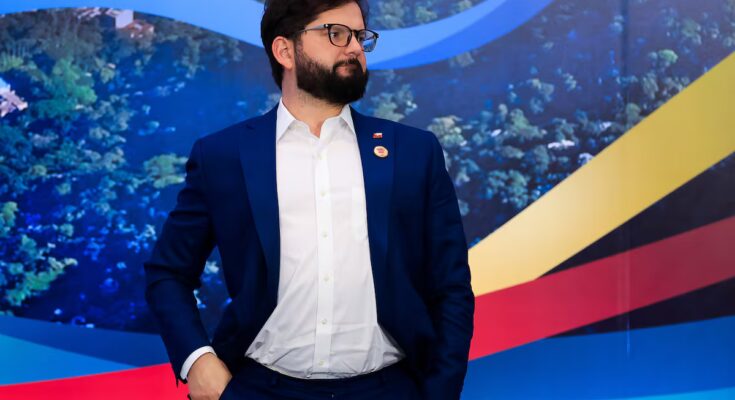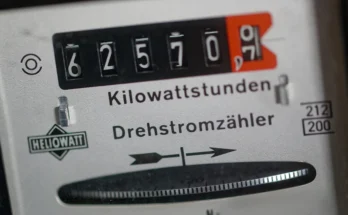Chile celebrates its presidential elections this Sunday, coinciding with parliamentary elections, and the two favorites to advance to the second round on December 14 are communist Jeannette Jara, sole representative of President Gabriel Boric’s ruling party, and far-right José Antonio Kast, leader of the Republican Party. It is the political scenario established in the Andean country after four years of left-wing government, led by a new generation, that of Boric, who came to power after the social outbreak of 2019, amid great citizen expectations and with a radical discourse that promised great transformations. With the passage of time and the weight of circumstances, however, the administration has had to modify its ambitions after serious defeats – Chileans rejected a proposal for a new Constitution supported by the left in 2022 – and the changing priorities of a complex citizenry disenchanted with politics.
Boric’s Chile gives way to a country of extremes. It is the first time since the return to democracy in 1990 that the Communist Party has had the political responsibility to lead a coalition. Never in the last 35 years, at the same time, have the political forces that valorize the dictatorship of Augusto Pinochet had great chances of reaching La Moneda.
The writer Patricio Fernández explains the change experienced by Chile between 2021, the year in which Boric was elected, and this 2025: “The main topics of public conversation were social rights (pensions, education, healthcare, housing), ecological claims, the rights of women, minorities, indigenous people and other cultural diversities. Nothing remains of all this. Today the debate focuses on security and economic growth.” The author of Moving. Notes on the social epidemic in Chile (2020), adds: “Anger and fear are the main protagonists of these elections. Not collective projects. Even disillusionment.”
Moderation is experiencing a complex moment in Chile. In the primaries of Boric’s governing party it was thought that the government’s Interior Minister, Carolina Tohá, from the centre-left, would win easily. Heir to the political tradition embodied in the defunct Concertación (1990-2010), Tohá sees the Boric government as a continuity of Chilean progressivism, not as a rupture. But last June he lost to Jara, his cabinet colleague, 28% to 60%. Something similar happens on the opposite sidewalk. For months the favorite was Evelyn Matthei, a historic figure of the traditional right, the sector that led the transition to democracy from the opposition. But polls have shown that both Kast and the libertarian Johannes Kaiser – who is even to the right of Kast – will overtake her in the elections this Sunday. Matthei failed to successfully differentiate himself from the faces of the new right and what Chilean voters saw was above all a dispute over the radicality of the speeches. Matthei, representative of a modern right, promised criminals “prison or cemetery”.
Daniel Mansuy, a Chilean academic and intellectual, explains it: “A certain part of the elites dreamed until January of a second Matthei-Tohá round, which was like a return to the 90s, and many people have seen that film -Chile is back to normality-, but this is completely losing sight of the fact that Chile is not in that category, so the talk of unity and agreements is very insufficient”, says Mansuy, a distinctive and requested voice in the Chilean intellectual space. Right.
The three right-wing representatives were supporters of Pinochet’s dictatorship, even though Matthei – daughter of a general member of the military junta – rejected the human rights violations committed in the 17 years of the regime (in April, however, she assured that the deaths in the first years were “inevitable”). In this third attempt by Kast to reach La Moneda, he tried to avoid Pinochet, but in his 2017 campaign he said that if the dictator were alive, he would vote for him. Kaiser, who supports the 1973 coup, said he would support a new coup under the same circumstances “with all the consequences,” including deaths. If the right were to win these presidential elections, it would be the first time since the return to democracy that a supporter of the dictator, who voted Yes In the 1988 plebiscite he governed the South American country. The only right-wing president Chile has had in the last 35 years was the late Sebastián Piñera (2010-2014 and 2018-2022), who voted NO in the historic referendum that put an end to the military regime.
Chile’s problems in 2025 are different: Chileans’ priorities, as polls show consecutively, are crime, assaults and robberies. The homicide rate has doubled in the last decade, although it remains low compared to most countries in the region. Chile, which has kept organized crime in check like countries like Uruguay and Costa Rica, has been unable to weather the storm of strengthening illegal markets. And Chile is afraid. For example, only 39% of its inhabitants feel safe walking alone at night, which places it in 138th place, just behind Zimbabwe, in a survey conducted in 144 territories by the American company Gallup. The central themes of this presidential campaign, therefore, were order and security, economic growth and the control of irregular immigration, issues which the right juggles more easily than the left. These elections are taking place in a context in which 24% of Chileans identify with the right, the highest level in history, according to the survey by the Center for Public Studies (CEP), 36% with the center and 20% with the left. Also peaking is support that, in some circumstances, an authoritarian regime might be preferable (23%). 52 years after the military coup against Allende, the new Chile values democracy less.
Chile’s democratic institutions, which people distrust, are not accountable to citizens. Chile has no intermediate processing paths, explains David Altman, a political scientist, in reference to systems in which citizens can be listened to and make decisions in response to the action of the political class. This is what causes, on many occasions, Chilean politics to seem to roll on its own axis and not move forward. A policy blockedas the social researcher Kathya Araujo says, who ensures that in Chile there are elections and everyone says that the country is purely authoritarian, and the other arrives, and the country is completely supportive, epic and we are all subjects ready for the revolution. “And it’s neither.” For the academic “the main problem is that the discomfort, anger and indignation are there”. It is one of the reasons why, for twenty years, starting from 2006, the opposition has always won Chilean presidential elections.
But what’s at stake? The sociologist Eugenio Tironi responds, ensuring that democracy is not at risk nor is the general trend of the country decided: “The real point under discussion this Sunday is another: how the political structure will be ordered for the cycle that opens. It is an election that will define hegemonies, identities and correlations of force, both on the left and on the right. The governability of the next few years will depend on this structure”, he assures.


